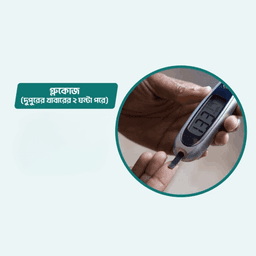Introduction to Glucose Tolerance Test (GTT) Understanding Urine Sugar Levels Methodology: 75 gm Glucose Test Measuring Urine Sugar at 1.5 Hours Interpreting Results Normal vs. Abnormal Urine Sugar Levels Clinical Implications Conclusion and Recommendations
The urine sugar test measures glucose levels in urine, often used to assess glucose metabolism. After consuming 75 grams of glucose, a 1.5-hour post-load urine test can correlate with blood glucose levels. Here's a summary: Negative urine sugar: Blood glucose levels are likely below the renal threshold (<180 mg/dL in most individuals). This indicates normal glucose tolerance or effective renal reabsorption. Trace to 1+ urine sugar: Blood glucose is slightly above the renal threshold (180–200 mg/dL). Suggests possible impaired glucose tolerance or early diabetes. 2+ to 4+ urine sugar: Blood glucose significantly exceeds the renal threshold (>200 mg/dL). Strongly indicative of diabetes or poor glucose control. However, urine sugar testing is less specific than blood glucose testing and may not precisely reflect blood glucose levels due to variations in renal threshold.
Covid Safety
Assured
Free Report
Counselling
Recommended for You
How our test process works!
The urine sugar test measures the amount of glucose present in the urine following glucose intake. This test is often used to assess glucose handling by the body, which can indicate diabetes or other metabolic conditions. The test involves consuming 75 grams of glucose and checking urine glucose levels 1.5 hours afterward.
No Glucose Detected: Low risk of diabetes.
Glucose Detected: May indicate impaired glucose tolerance, diabetes, or kidney function issues that prevent reabsorption of glucose. Early detection through this test is key, as persistent high levels warrant further testing.
Fasting Plasma Glucose: Less than 100 mg/dL (5.6 mmol/L)
1-Hour Plasma Glucose: Less than 180 mg/dL (10.0 mmol/L)
2-Hour Plasma Glucose: Less than 140 mg/dL (7.8 mmol/L)
Normal Results: If urine glucose is negative or very low, it typically indicates that blood glucose levels are being well managed and are below the renal threshold.
Elevated Urine Glucose: If glucose is detected in the urine, it may suggest:
High Blood Glucose: Blood glucose levels are high, possibly due to diabetes or uncontrolled glucose levels.
Diabetes: Persistent urine glucose can be a sign of diabetes, especially if accompanied by abnormal blood glucose levels in the OGTT.
Renal Threshold Variation: Some individuals might have a lower renal threshold, meaning they excrete glucose into the urine at lower blood glucose levels.
Frequently Asked Question
Corresponding Urine Sugar with 1.5 hr. after 75 gm Glucose
Introduction to Glucose Tolerance Test (GTT) Understanding Urine Sugar Levels Methodology: 75 gm Glucose Test Measuring Urine Sugar at 1.5 Hours Interpreting Results Normal vs. Abnormal Urine Sugar Levels Clinical Implications Conclusion and Recommendations
The urine sugar test measures glucose levels in urine, often used to assess glucose metabolism. After consuming 75 grams of glucose, a 1.5-hour post-load urine test can correlate with blood glucose levels. Here's a summary: Negative urine sugar: Blood glucose levels are likely below the renal threshold (<180 mg/dL in most individuals). This indicates normal glucose tolerance or effective renal reabsorption. Trace to 1+ urine sugar: Blood glucose is slightly above the renal threshold (180–200 mg/dL). Suggests possible impaired glucose tolerance or early diabetes. 2+ to 4+ urine sugar: Blood glucose significantly exceeds the renal threshold (>200 mg/dL). Strongly indicative of diabetes or poor glucose control. However, urine sugar testing is less specific than blood glucose testing and may not precisely reflect blood glucose levels due to variations in renal threshold.
Covid Safety
Assured
Free Report
Counselling
